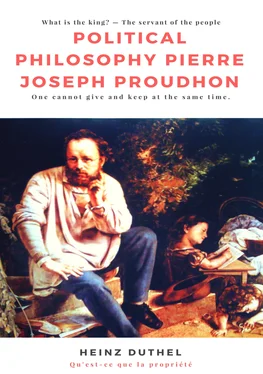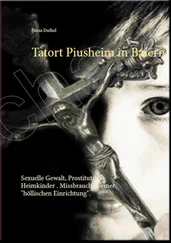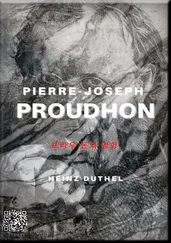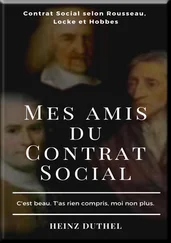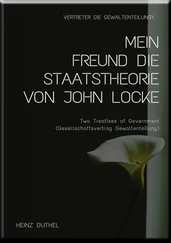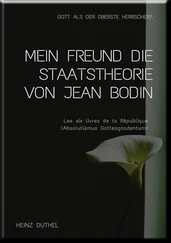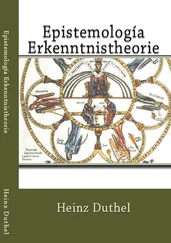But Proudhon's legacy has not been limited to the instrumentation of his thought by the revolutionary right (la droite révolutionnaire). He also influenced the non-conformists of the 1930s, (19 ) as well as classical anarchism. In the 1960s, he became the main influence of autogestion (workers' self-management) in France, inspiring the CFDT trade-union, created in 1964, and the Unified Socialist Party (PSU), founded in 1960 and led until 1967 by Édouard Depreux. In particular, autogestion influenced the LIP self-management experience in Besançon.
Proudhon's thought has seen some revival since the end of the Cold War and the fall of "real socialism" in the Eastern Bloc. It can be loosely related to modern attempts at direct democracy. The Groupe Proudhon, related to the Fédération Anarchiste (Anarchist Federation), published a review from 1981 to 1983 and again since 1994. (The first period corresponds with the 1981 election of Socialist candidate François Mitterrand and the economic liberal turn of 1983 taken by the Socialist government.) It is staunchly anti-fascist and related to the Section Carrément Anti Le Pen which opposes Jean-Marie Le Pen). (20 ) English-speaking anarchists have also attempted to keep the Proudhonian tradition alive and to engage in dialogue with Proudhon's ideas: Kevin Carson's mutualism is self-consciously Proudhonian, and Shawn P. Wilbur has continued both to facilitate the translation into English of Proudhon's texts and to reflect on their significance for the contemporary anarchist project.
Criticisms and alleged racism
Stewart Edwards, the editor of the Selected Writings Of Pierre-Joseph Proudhon, remarks: "Proudhon's diaries (Carnets, ed. P. Haubtmann, Marcel Rivière, Paris 1960 to date) reveal that he had almost paranoid feelings of hatred against the Jews, common in Europe at the time. In 1847 he considered publishing an article against the Jewish race, which he said he "hated". The proposed article would have "called for the expulsion of the Jews from France... The Jew is the enemy of the human race. This race must be sent back to Asia, or exterminated. H. Heine, A. Weil, and others are simply secret spies. Rothschild, Crémieux, Marx, Fould, evil choleric, envious, bitter men etc., etc., who hate us." (Carnets, vol. 2, p. 337: No VI, 178)
J. Salwyn Schapiro wrote in 1945:
Proudhon had the tendency, inevitable in the Anti-semite, to see in the Jews the prime source of the nation's misfortunes, and to associate them with persons and groups that he hated...Anti-semitism, always and everywhere, the acid test of racialism, with its division of mankind into creative and sterile races, led Proudhon to regard the Negro as the lowest in the racial hierarchy. During the American Civil War he favored the South, which, he insisted, was not entirely wrong in maintaining slavery. The Negroes, according to Proudhon, were an inferior race, an example of the existence of inequality among the races of mankind... His book La Guerre et la paix, which appeared in 1861, was a hymn to war, intoned in a more passionate key than anything produced by the fascists of our time...Almost every page of La Guerre et la paix contains a glorification of war as an ideal and as an institution...His hysterical praise of war, like his ardent championship of the dictatorship of Louis Napoleon, like his unwavering support of the middle class, was an integral part of his social philosophy... In the powerful polemist of the mid-nineteenth century it is now possible to discern a harbinger of the great world evil of fascism. An irritating enigma to his own generation, his teachings misunderstood as anarchy by his disciples, Proudhon's place in intellectual history is destined to have a new and greater importance. It will come with the re-evaluation of the nineteenth century, as the prelude to the world revolution that is now called the second World War. (21 )
According to George Woodcock, some positions Proudhon took "sorted oddly with his avowed anarchism". For example, he proposed that each citizen perform one or two years militia service. (22 ) The proposal appeared in the Programme Revolutionaire, an electoral manifesto issued by Proudhon after he was asked to run for a position in the provisional government. The text reads: "7° 'L'armée. – Abolition immédiate de la conscription et des remplacements; obligation pour tout citoyen de faire, pendant un ou deux ans, le service militaire ; application de l'armée aux services administratifs et travaux d'utilité publique." ("Military service by all citizens is proposed as an alternative to conscription and the practice of "replacement," by which those who could avoided such service.") Woodcock's criticism is understandable. However, in the same document, Proudhon described the "form of government" he was proposing as "a centralization analogous with that of the State, but in which no one obeys, no one is dependent, and everyone is free and sovereign." (23 )
Albert Meltzer says that though Proudhon used the term "anarchist," he was not one, and that he never engaged in "anarchist activity or struggle, indeed Proudhon engaged in parliamentary activity." (24 )
Quotes
Proudhon's essay on What Is Government? is quite well known:
To be GOVERNED is to be watched, inspected, spied upon, directed, law-driven, numbered, regulated, enrolled, indoctrinated, preached at, controlled, checked, estimated, valued, censured, commanded, by creatures who have neither the right nor the wisdom nor the virtue to do so. To be GOVERNED is to be at every operation, at every transaction noted, registered, counted, taxed, stamped, measured, numbered, assessed, licensed, authorized, admonished, prevented, forbidden, reformed, corrected, punished. It is, under pretext of public utility, and in the name of the general interest, to be place (d ) under contribution, drilled, fleeced, exploited, monopolized, extorted from, squeezed, hoaxed, robbed; then, at the slightest resistance, the first word of complaint, to be repressed, fined, vilified, harassed, hunted down, abused, clubbed, disarmed, bound, choked, imprisoned, judged, condemned, shot, deported, sacrificed, sold, betrayed; and to crown all, mocked, ridiculed, derided, outraged, dishonored. That is government; that is its justice; that is its morality. (P.-J. Proudhon, General Idea of the Revolution in the Nineteenth Century, translated by John Beverly Robinson (London: Freedom Press, 1923), pp. 293-294.)
Another famous quote was his "dialogue with a Philistine" in What is Property?:
"Why, how can you ask such a question? You are a republican."
"A republican! Yes; but that word specifies nothing. Res publica; that is, the public thing. Now, whoever is interested in public affairs – no matter under what form of government – may call himself a republican. Even kings are republicans."
"Well! You are a democrat?"
"No."
"What! "you would have a monarchy?"
"No."
" A Constitutionalist?"
"God forbid."
"Then you are an aristocrat?"
"Not at all!"
"You want a mixed form of government?"
"Even less."
"Then what are you?"
"I am an anarchist."
"Oh! I understand you; you speak satirically. This is a hit at the government."
"By no means. I have just given you my serious and well-considered profession of faith. Although a firm friend of order, I am (in the full force of the term) an anarchist. Listen to me."
Also:
"Whoever lays his hand on me to govern me is a usurper and tyrant, and I declare him my enemy." (1849)
What Is Property?
The System of Economic Contradictions, or Philosophy of Poverty is a work published in 1847 by Pierre-Joseph Proudhon. It inspired Karl Marx to write the rejoinder The Poverty of Philosophy.
What Is Property?: or, An Inquiry into the Principle of Right and of Government (French: Qu'est-ce que la propriété ? ou Recherche sur le principe du Droit et du Gouvernment) is an influential work of nonfiction on the concept of property and its relation to anarchist philosophy by the French anarchist and mutualist Pierre-Joseph Proudhon, first published in 1840.
Читать дальше
